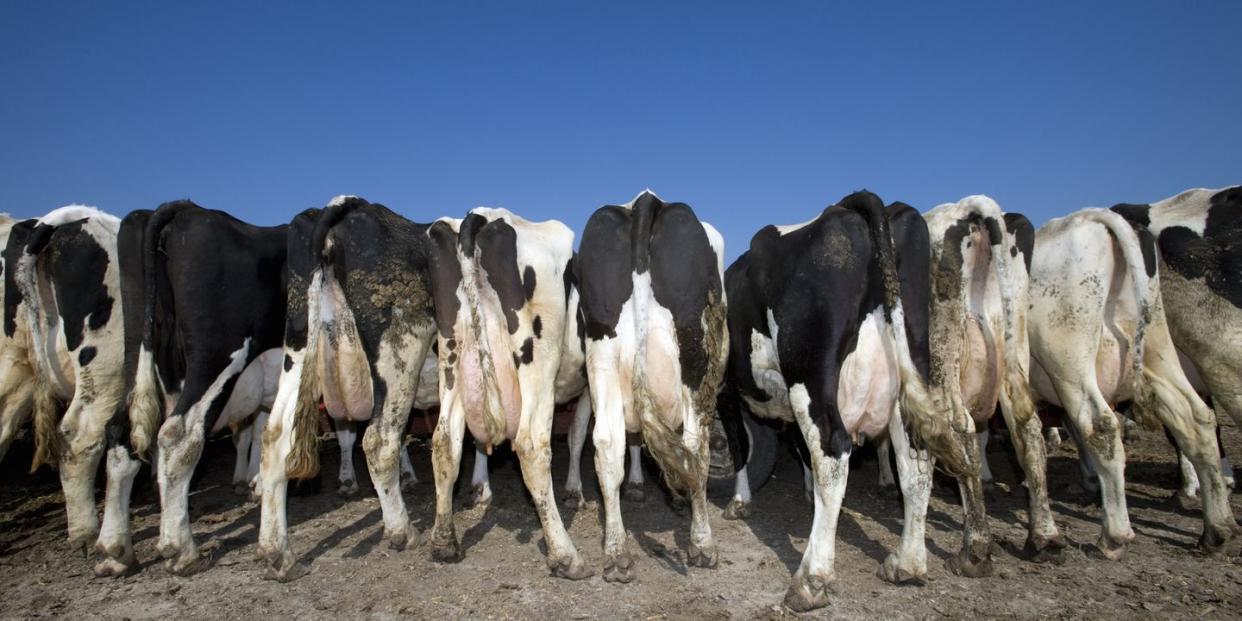Burger King Is Making Its Cows Fart Less to Slow Climate Change

Burger King is debuting new Whoppers made from beef with a purportedly lower-methane diet.
Cattle are part of the massive amount of climate-changing methane produced by human industry.
Technically, cows belch far more methane than they release as flatulence.
Burger King has announced new plans to reduce cow methane with a small tweak to the livestock’s daily diet. By adding lemongrass to its cattle feed, the fast food chain says it can reduce the amount of digestive methane that cows release as waste. Burger King worked on the formula with scientists from University of California Davis and Autonomous University of Mexico State in central Mexico.
Methane is one of the most important (in a good and bad way) greenhouse gases, and the main ingredient in what we broadly refer to as “natural gas.” We produce a massive amount of it from landfills, where naturally biodegrading materials in human garbage release a combination of methane and carbon dioxide.
If you grew up or live anywhere near a landfill, you may have seen a special torch that burns off released methane gas in a process called flaring. (This controversial process helps reduce the impact of methane by burning it into carbon dioxide instead.) Methane is also produced by agriculture and by the petroleum and natural gas industries.
This means methane is heavily politicized. During President Barack Obama’s tenure in the White House, his administration introduced new regulations on flaring, for example. And those were rolled back by President Donald Trump’s administration, which has taken a hardline stance on many forms of environmental regulation.
This is where Burger King enters the fray.
The brand has struggled for years as it loses market share to other fast-food brands, and as the entire fast-food industry loses market share in turn to fast-casual restaurants. The chain has, at least, made a gentle pivot to offering items like the Impossible Burger Whopper and vowing to remove all artificial ingredients by the end of 2020, announcing the latter with a puzzling ad campaign featuring moldy Burger King food.
Now, Burger King says by collaborating with agricultural scientists, it has developed a new daily feed with 100 grams of lemongrass added to reduce the amount of digestive gas in cows. While the truth is that cows belch more methane than they pass as flatulence, all can potentially be mitigated by small changes in diet.
The American and Mexican scientists involved in Burger King's new initiative have studied cow methane for a long time, including seaweed as another potential gas reducer. Both seaweed and lemongrass are in the mix, so to speak, because they help to inhibit the production of new methane within cattle’s digestion. As Beano or ginger are to the human digestive system, an enzyme found in seaweed or lemongrass is to that of the ruminant.
Beef raised on the new diet is debuting today in Whopper sandwiches at selected Burger King restaurants in Austin, Portland, and New York. And where the seaweed diet prompted other ingredients because of the salty taste, mild lemongrass just adds, perhaps, a refreshing top note. Bon appetit, cows.
You Might Also Like

